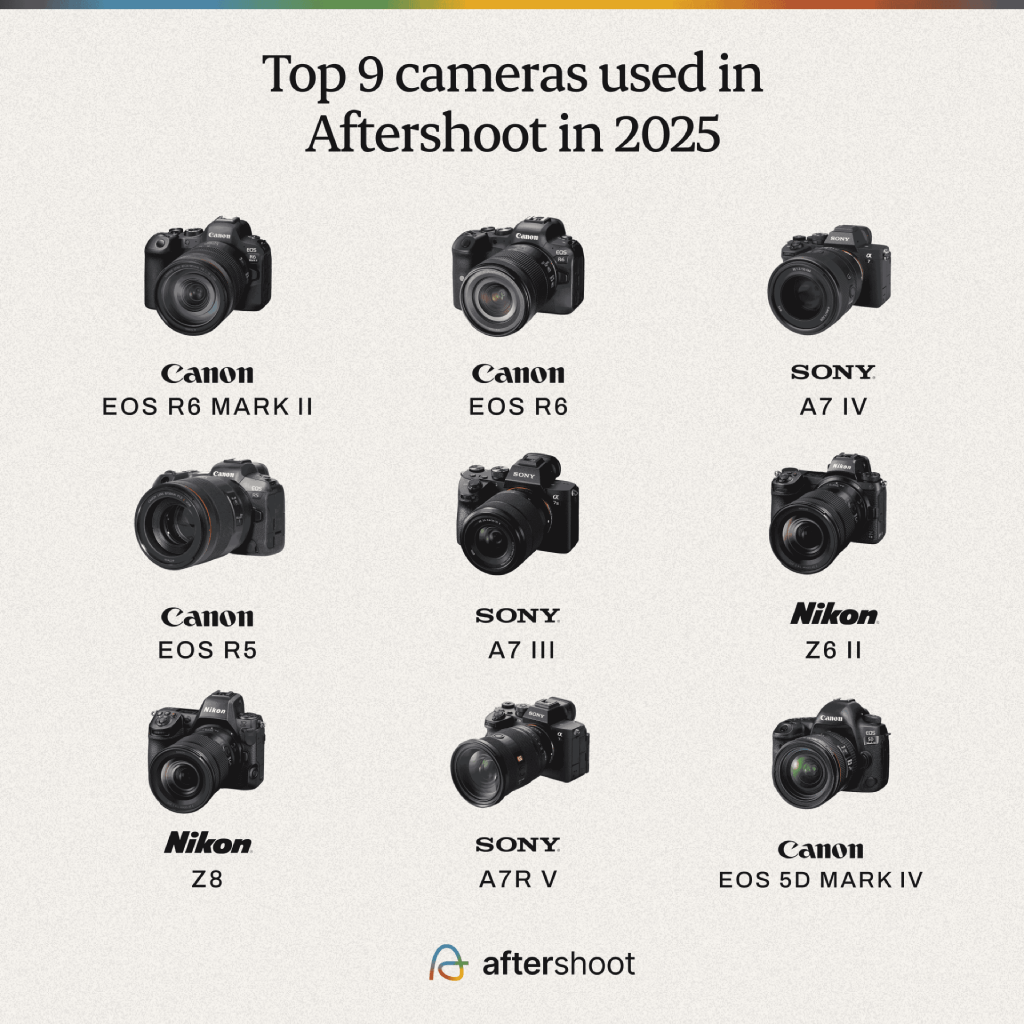Pick Balance Today, Avoid Burnout Later
Work-life balance is not just a far-fetched concept beyond your reach. If you’re a photographer who wants a business with longevity, a good personal and professional life balance is a must.
If you’re not quite there yet, don’t worry – many photographers are in a similar boat. But, with honest reflection and clear, actionable steps, you can get there gradually. Discover the benefits of work-life balance and learn how to achieve it.
Also Read: How to Cull Photos With Aftershoot
Sleepless nights, catering to every client’s needs, and making personal sacrifices are the hallmarks of every successful business, right? In moderation, yes. But if you want a photography business that lasts, you must also take care of your well-being and needs. Your business is nothing but an empty shell without its healthy and energized leader.
Don’t think of personal time and needs as a distraction from your business, but rather a necessity that helps you be a better photographer. It’s hard enough to run a business but almost impossible if you’re burnt out and have nothing else as an outlet.
It’s essential to make time for interests and personal relationships outside of work. The upsides are too many to count – you will come back more creative, full of life, and have the stamina to handle peak season business.
A few productivity hacks coupled with the correct behavior adjustments can put you on track for long-term success. If you want your photography business to thrive, it’s worth the effort.
Set Boundaries for a Healthy Distance
As a business owner, you have the freedom to work whenever and wherever you want. The possibilities are endless, and many can only dream of having this opportunity.
But, the downside is that you can soon let work take over your whole life. “A few more hours” may quickly become your go-to response for everything, eating into your personal time. But, if left unchecked, it can turn you from enthusiastic and motivated to burnt-out and struggling.
As all photographers know, we will give our best to our clients, so it can be tricky to juggle a healthy balance – between yourself and your clients and between work and personal hours.
You can start with a few simple steps:
- Plan daily work hours based on your lifestyle and experiment with finding your natural energy rhythm. Your high productivity periods may not fit a typical 9-5 schedule.
- Designate a time each day when you’re available for client calls, and make it clear on your website or email signature. Use a separate phone number for business calls, and set up a voicemail that details your availability.
- Similarly, establish email and social media communication hours. When someone messages you late at night, keep the message unread, so you don’t forget to respond during work hours. You may find it helpful to disable notifications for all your work-related apps.
- Plan distraction-free blocks of time for tasks like admin and editing. Make these known to others in your household if you share your workspace, and use tools to block distractions if you struggle to keep off social media.
- You can schedule specific days for photography sessions to know when you will be away from your desk each week and plan your workload accordingly.
- Prepare for long work days or busy weekends by communicating upcoming peak business periods with your partner.
- Don’t forget to include breaks and time off. Set aside non-negotiable personal days on a weekly or monthly basis.
Tools like appointment scheduling apps and automated email responses can aid in getting your work-life balance on track. If you find yourself looking for extra accountability, try tracking your habits. For example, you might want to switch off from your work socials at a particular time each day or keep track of how many days you stayed within your work hours. Use a hand-written bullet journal or a phone app to see your progress. The mere sight of a week of completed habits can feel like a great achievement.
Learn To Say “No” More Often Even if It’s Hard
No doubt, it’s great to have organizational systems in place for healthy boundaries. But, if you don’t know how to say “no” to some clients, you can undermine all the effort you’ve put into building them. But why would you say “no” to potential leads if your goal is to grow a business?
The answer is simple – not every job is worth it, especially if you spot red flags from a mile away. For example, a client may haggle or ask for a price match with a local photographer. They may even ask you to do more than what’s in your contract without covering your costs. Other times, you may encounter clients who are difficult to communicate with or make your heart race just thinking about them.
Managing a photography business involves learning that not every paying client will be a good match for you. It’s essential to trust your gut in these situations and know you have the right to decline.
To help you work on the skill of saying “no,” ask yourself:
- Is the job in line with my values as a business owner and a person?
- Will this job or client help my financial, professional, creative, or personal goals?
- What are the compromises I have to make as a result?
- Will the gains outweigh the losses?
From being transparent and standing your ground to passing the lead to another photographer who may be a better fit, there are many ways to decline a job or request politely. The main thing is to keep practicing until it becomes second nature – because it will!
Streamline and Automate To Get Your Life Back
You already know that you can’t always do everything as a business owner – it’s simply not possible. If you’re out on a shoot, you can’t answer your client’s emails or edit your photos. So, how can you be in two places at once? You can’t. But, automated workflows are as close as it gets.
Possibly the best investment you can make is studio management software (CRM) since it can cover most if not all of your business admin needs.
For example, with most CRM, you can set up processes that can help you:
- Track new client leads
- Maintain a client portal with booking details and documentation in one place
- Manage business finances
- Send reminders about shoots, payments, and forms
- Email instructions about the next step of their booking
- Let clients book you using an appointment scheduler
- Set up email marketing, such as welcome emails and special offers
- Create personalized email, contract, and form templates to save time
These steps and others can be semi-automated, like creating a contract with a template and modifying some of its details, or fully automated, like sending an instant reminder a few days before a payment is due.
Business admin aside, you can also automate repetitive photo tasks like culling. For example, culling software Aftershoot rejects blurs, blinks, bad exposures, and other unsuccessful photos. You still have complete control over the selections and can tailor the software’s AI tools to fit your workflow.
After all, any business tool you pick for your workflow needs to be worth the investment and simplify your life, not complicate it. If you find the initial setup overwhelming, automate one simple step that you often repeat, like welcome emails.
You will soon see the benefits – more time gained back, a better understanding of how automation can be useful, and more ways to earn extra, such as by using email marketing.
The main thing is to start as early as possible so your business can run independently when you’re away from your desk. Ultimately, your photography business should serve you too, so start by following some of the steps above to reach a better work-life balance.
Ready to claim your 30-day free trial with Aftershoot? Join thousands of photographers who use Aftershoot, a revolutionary culling system that will speed up your workflow!



